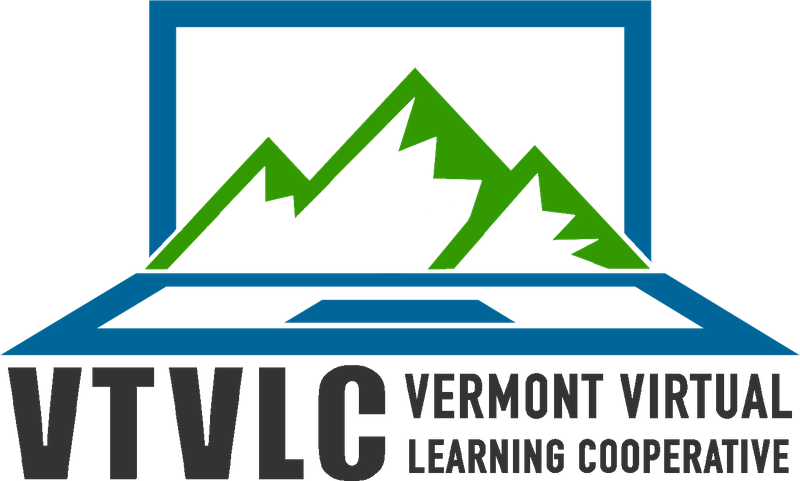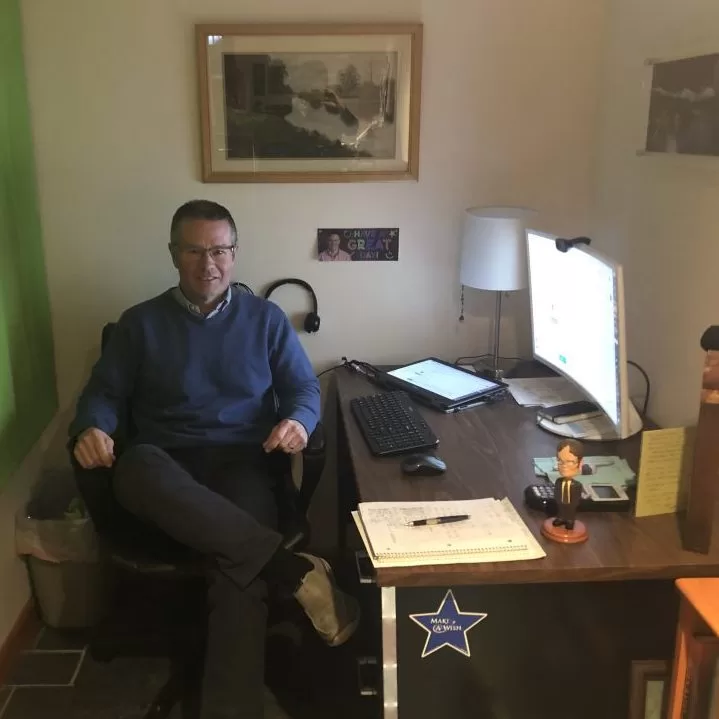Teacher Spotlight

Teacher Spotlight: Geoff Glaspie
Prior to this school year, Geoff Glaspie was serving as an Algebra and Geometry teacher at Champlain Valley Union High School. But, when his principal asked for volunteers to teach in the Collaborative School Option (CSO) program, which allowed teachers and students to teach and learn fully online with support from VTVLC, Glaspie seized the opportunity.
“I enjoy working with students one-on-one and feel that working with a more diverse collection of students from across the state would be interesting,” said Glaspie. “I also felt this experience would ultimately make me a better teacher.” Glaspie also wanted to ensure that CVU students who chose to learn fully remote would have access to a familiar face and a connection to their home school.
Since September, Glaspie has been teaching Algebra 2, Precalculus, and Calculus to Vermont students around the state through CVU’s VTVLC-supported virtual academy.
Glaspie says that online learning has helped him to better assess a student’s true understanding of the content, through assessments like Discussion Based Assessments (DBA’s) and other forms of assessment unique to online learning.
“I have learned how to better curate instruction to make it as clean and clear as possible,” said Glaspie. In order to grapple with the limited time he has to synchronously meet with students each week, Glaspie says he has had to be very efficient and effective with his instruction, and he’s gained knowledge about making lessons more engaging. “I’ve seen what works and what doesn’t,” he said.
Geoff Glaspie |
|
School |
Champlain Valley Union High School |
Subjects |
Math |
Years Teaching Online |
1 |
I felt this experience would ultimately make me a better teacher. Overall, I have developed as good or better relationships with students in online learning as in brick and mortar
Before teaching CSO for VTVLC Glaspie had some exposure to online teaching: during the emergency remote teaching period in spring 2020 that every Vermont teacher experienced, and as a student, Glaspie has taken two math classes through online instruction.
What Glaspie finds most surprising about online teaching is the great relationships that have come through his work with his students. “Overall, I have developed as good or better relationships with students in online learning as in brick and mortar,” Glaspie said.
Though, online teaching is not without its challenges. “I am also surprised how much work it takes to do online teaching well. It takes a lot of time, but I do enjoy it,” Glaspie said.
Additionally, Glaspie says he has had to cultivate a good work-life balance as part of teaching online. “It’s really easy, when one is committed 110% to students learning, to spend nights and weekends every week on giving actionable feedback, lesson planning, and providing additional activities/lessons to make the content more accessible to students,” Glaspie said.
Fortunately, Glaspie says math, his subject area, is well-suited to online teaching because students can show their work and attach pictures with relative ease, which helps Glaspie gain a deeper understanding of their proficiency. “It’s easy for me to create and post help and sample problem videos for them to use,” Glaspie said. “Tools like Jamboard, Desmos, Flipgrid make for usable platforms for mathematical discussions.”
Glaspie is currently taking courses in the Northeast Online Teaching Institute’s Adapted Certificate in Online Teaching Program and feels that the certificate will give him options in the future. “I suspect hybrid instruction could become more of a norm for secondary schools in the very near future,” Glaspie said.
Whether online or face-to-face, Glaspie is happy to see his students advance their skills. “I am impressed with the commitment I see in so many of my students,” Glaspie said. “I am also so happy to see that so many have honed their executive functioning skills, which will be so beneficial to them as they move beyond High School.”



